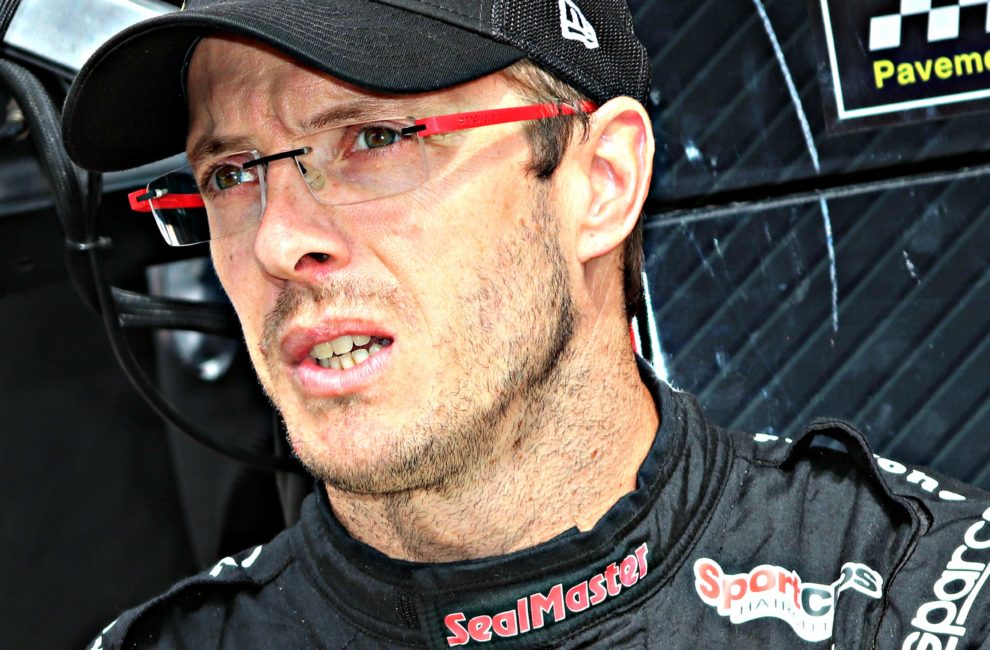IndyCar Drivers React To Upended Season

Sebastien Bourdais Kate Shoup
On the morning of Thursday, March 12, the IndyCar paddock convened in St. Petersburg, Florida, for the first race of the season. Having last laid tire to track way back in September, everyone was fired up. But that afternoon, a series of coronavirus-related cancellations—starting with the NBA, which nixed the remainder of its season after a player tested positive, followed by the NCAA, which pulled the plug on March Madness—sent IndyCar officials scrambling. They were in an impossible position: run the race and risk potentially exposing thousands of spectators to the virus (and the series to considerable lawsuits), or cancel it and risk financial calamity.
That afternoon, series officials announced that the St. Pete race weekend would continue, but on a condensed schedule, and without spectators. But the next day, Friday, March 13, as the crisis escalated, they postponed St. Pete indefinitely—along with the Barber, Long Beach, and Austin races. The 2020 IndyCar season was now tentatively scheduled to begin on May 9 at the Indy Grand Prix road race followed by the Indianapolis 500 on May 24.
In the ensuing two weeks, the virus spread. More and more people fell ill. More and more people died. Suddenly, running the Grand Prix on May 9 seemed, well, imprudent. And running the 500 on May 24—assembling an estimated 300,000 people during a global pandemic, even if it would likely be on the downslope—seemed absurd.
Mercifully, series officials announced a revised schedule on March 26. Now, the season—which has been condensed from 17 to 14 races—will start on May 30, in Detroit. The Indy 500 has moved (August 24), as have several other events, including Mid-Ohio (August 9), Gateway (August 30), Portland (September 13), and St. Pete (TBA). And the Indy GP will be the first event in an IMS double-header on July 4 with the first NASCAR race on the IMS road course—the Pennzoil 150 at the Brickyard, occurring that same day—and the NASCAR Brickyard 400 set on July 5.
After this announcement, a few IndyCar series drivers weighed in on what they thought about the new racing calendar. “I’m just happy that we’re getting to race,” says 2018 Indy 500 winner Will Power. “What was hard was when we didn’t have a solid schedule. I didn’t know when we were going to race, or even if we were going to have a season. But now you have something to work toward, so I’m feeling more positive now.”
“I’m happy that we’re going racing,” agrees Zach Veach. “The Indy 500 has never been run in August, so it will be historic.”
For four-time Champ Car series winner Sébastien Bourdais—who signed with A.J. Foyt Racing for a partial season—the revised schedule is less ideal. Two of the four events for which he was slated to drive—Barber and Long Beach—dropped off the calendar, parking him until Portland. To spin the bad news into a positive, Bourdais has shifted his immediate focus to landing a full-time Foyt ride next year. “We were already talking about it before this happened, but now it’s putting even more importance on trying to build something,” he said.

Will PowerKate Shoup
To stay sharp, several drivers have set up racing simulators in their homes and will compete in a series of iRacing events that will be live-streamed online (The first of these will be streamed online Saturday, March 28, at 4 p.m. EST). “It’s just to try to keep fans engaged and keep things going on our part,” notes 2019 Indy 500 Rookie of the Year Santino Ferrucci. Drivers are also focusing on maintaining their fitness. Normally this involves a lot of time at the gym, but with facilities closed, they’re left to improvise. “Swimming’s out,” says Power. “So I’m doing a lot of running and cycling.”
Gearing up for the start of the season, then dramatically downshifting to idle is not easy for drivers who are fueled on adrenaline and danger, but they’re finding ways to keep busy. Bourdais and Power have kids, so parenting is an effective diversion. But everyone’s eager to get back to normal. “The downtime makes you realize how bad life would be without racing,” concedes Power. “Everyone in the paddock is so social, which I really miss.”
“It’s going to be a bit of a long game,” Bourdais says, trying to be philosophical. “In the grand scheme of things, we’re not allowed to complain at our situation. It’s just the way it is. We’re pretty fortunate in our lives in general. So it’s not bad for us. But it’s tough to see the world struggle.”





